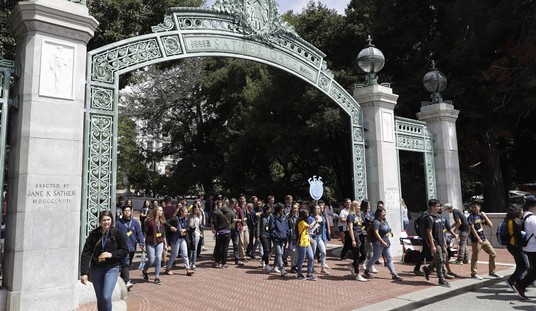When Rand Paul announced his “official” candidacy for the presidency this week he sparked a number of debates, not only in the media and among his opponents, but inside the GOP. One of the less noticed ones revolved around a comment he made during the speech regarding the institution of term limits for congressional offices, similar to what we have for the Oval Office. This drew a quick response from our friend Matt Lewis, who feels that Rand is missing the mark.
During his presidential announcement on Tuesday, Sen. Rand Paul took a stand for term limits. “We limit the president two terms” he said. “It is about time we limit the terms of Congress.”
This struck me as an odd thing for a libertarian-leaning candidate to say. After all, shouldn’t we the people get to decide whom we want to represent us…or not? Having someone else decide what’s best for us strikes me as the electoral equivalent of helmet laws.
In both cases, there are unintended consequences. In the case of the term limits, what happens when politicians no longer stick around long enough to acquire the knowledge and expertise that come with tenure? The predictable answer is that they become ever more reliant on staffers and lobbyists. These unelected and unaccountable elites inevitably become the permanent ruling class.
This is an inevitable result of frustration at the political process. The notion that term limits are a panacea is not a new one, of course. It was even part of the Contract With America (a part quickly abandoned).
Before getting to the core issue of term limits, I would take exception with one of Matt’s points here. He seems to argue that political staffers are somehow more powerful than their bosses and must therefore be part of the underlying problem. Is he suggesting that staffers should be somehow “term limited” in DC? They are employees. Now, as a blogger I will be the first to admit that staffers are far more powerful than the rank and file television viewer imagines since they control access and can channel policy advice along with many other functions. But in the end, it’s the elected official who makes the final decisions and must bear responsibility for same. Also, staffing can be a career for a regular working person which is completely different than an elected position. Do we send all the staffers back into the wild to start their careers over after four, six or eight years? Who would take those jobs if they knew that was their fate? This part of the argument should be discounted.
Returning to the main point here, the issue of term limits is one where I develop a bit of sympathy for political candidates who are accused of flip flopping. I’ve probably changed my mind on this subject a half dozen times over the last decade. There is a libertarian spark in my political lizard brain which tells me that Matt is correct and term limits rob citizens of the ability to vote for the person they wish to, even if it’s someone who has already served “x” number of terms in office. By placing artificial limits on a term (as opposed to the ultimate limiting factor of having the voters reject you) you are, by definition, limiting the available options.
But that position is tempered – at least in part – by understanding that if the limits are put in place by the elected representatives of the citizens, it’s not an absolute case of robbing them of alternatives. Additionally, I think Matt makes a valid point when he says that the compunction to embrace term limits is something of a knee jerk reaction which comes from frustration with the ineffectual nature of Washington, DC. When we experience year after year of public approval ratings for Congress which hover in or near the single digits, it is not unimaginable that people would seek any remedy to change things. Term limits do not ensure that you will get someone better in any given seat, but at least there will be someone new.
If we are unhappy with the quality of our representatives in Washington, but unable to kick them to the curb because of the current system, perhaps the people are not the problem. Just possibly the culture of politics is the problem. We are breeding one generation after another of career politicians who tend to behave the same way for one reason… it works. Trying something bold and new is admirable to be sure, but the rules of political Darwinism indicate that it won’t propagate far if the practitioners immediately die off.
If we want to have a new generation of more desirable elected officials, just swapping in new faces on a rigid schedule won’t solve the problem. We need to create an environment where better public servants can thrive. How do we do that? Let me know and I’ll steal your ideas for a future column.







Join the conversation as a VIP Member